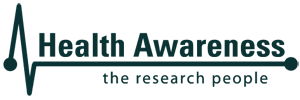What is Restless Leg Syndrome?
Restless legs syndrome (RLS) is a neurological disorder characterized by throbbing, pulling, creeping, or other unpleasant sensations in the legs and an uncontrollable, and sometimes overwhelming, urge to move them. Symptoms occur primarily at night when a person is relaxing or at rest and can increase in severity during the night. Moving the legs relieves the discomfort. Often called paresthesias (abnormal sensations) or dysesthesias (unpleasant abnormal sensations), the sensations range in severity from uncomfortable to irritating to painful.
How do you treat Restless Leg Syndrome?
Certain lifestyle changes and activities that may reduce symptoms in persons with mild to moderate symptoms include decreased use of caffeine, alcohol, and tobacco; supplements to correct deficiencies in iron, folate, and magnesium; changing or maintaining a regular sleep pattern; a program of moderate exercise; and massaging the legs, taking a hot bath, or using a heating pad or ice pack. A trial of iron supplements is recommended only for individuals with low iron levels. Although many people find some relief with such measures, rarely do these efforts completely eliminate symptoms.
Medications are usually helpful but no single medication effectively manages RLS for all individuals. Trials of different drugs may be necessary. In addition, medications taken regularly may lose their effect over time, making it necessary to change medications periodically.
For more information about Restless Leg Syndrome:
